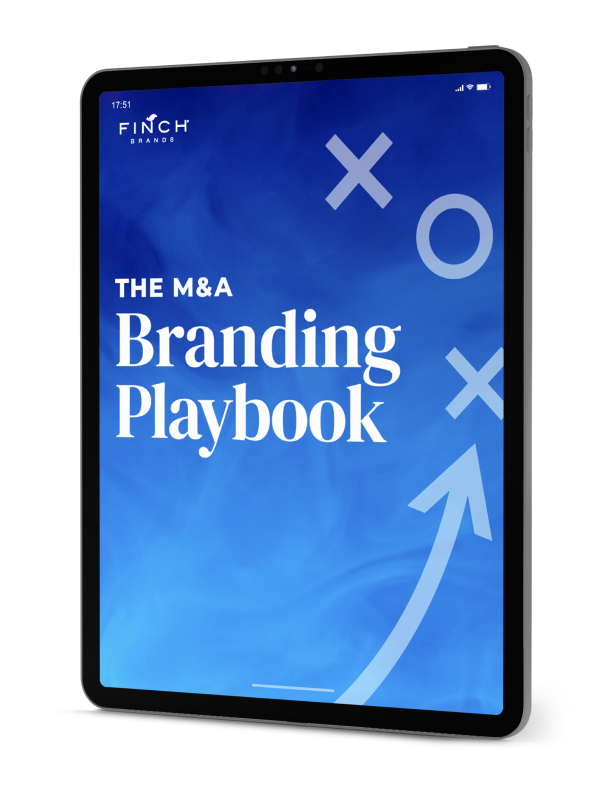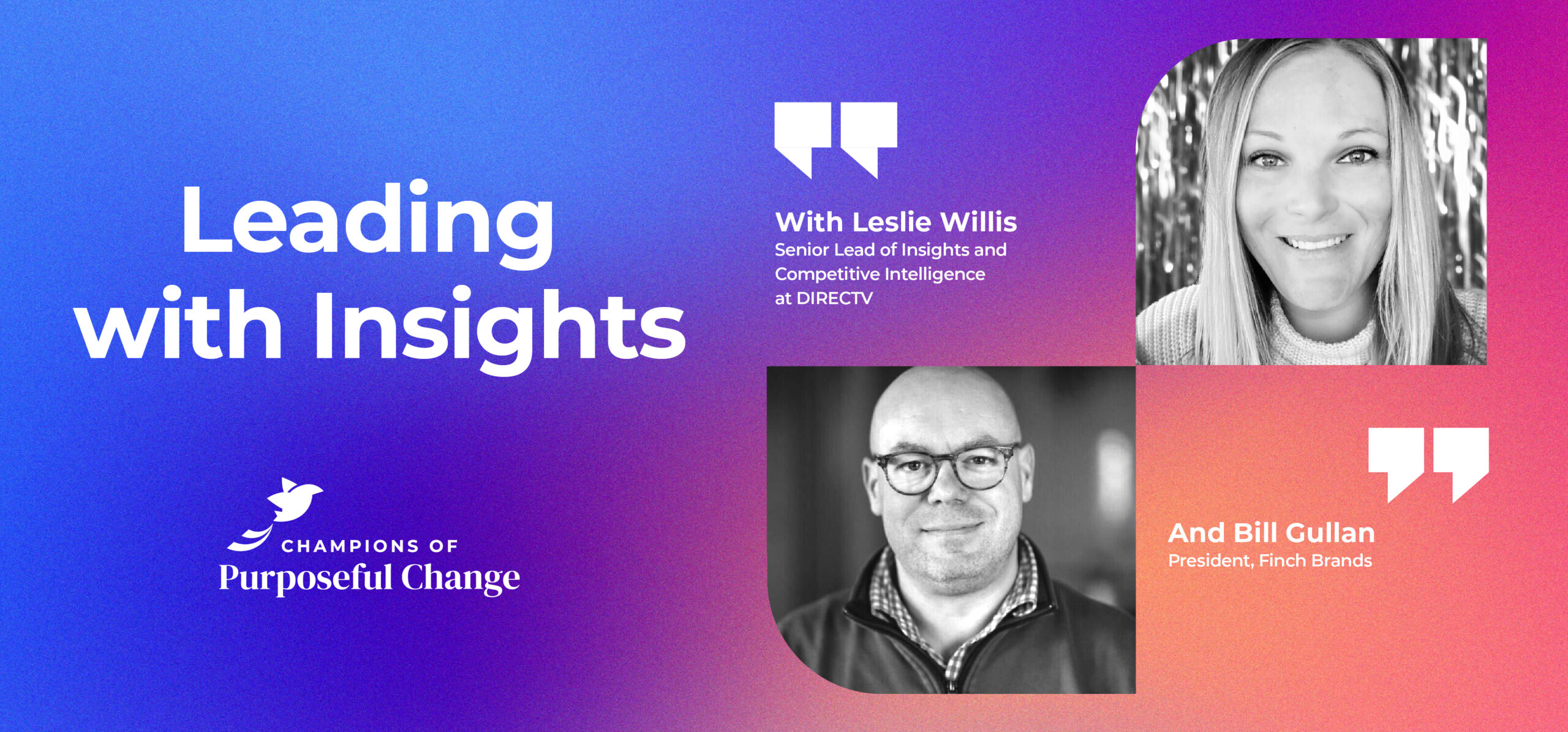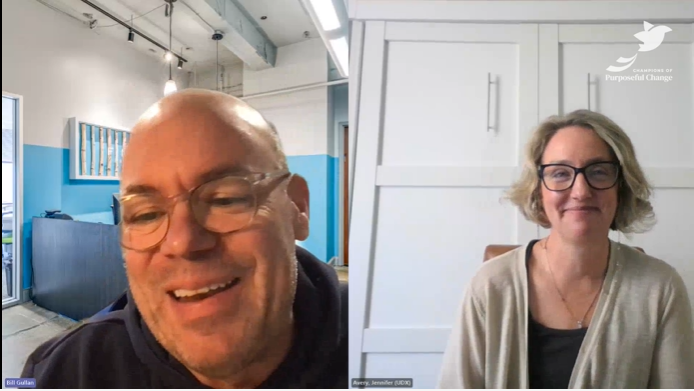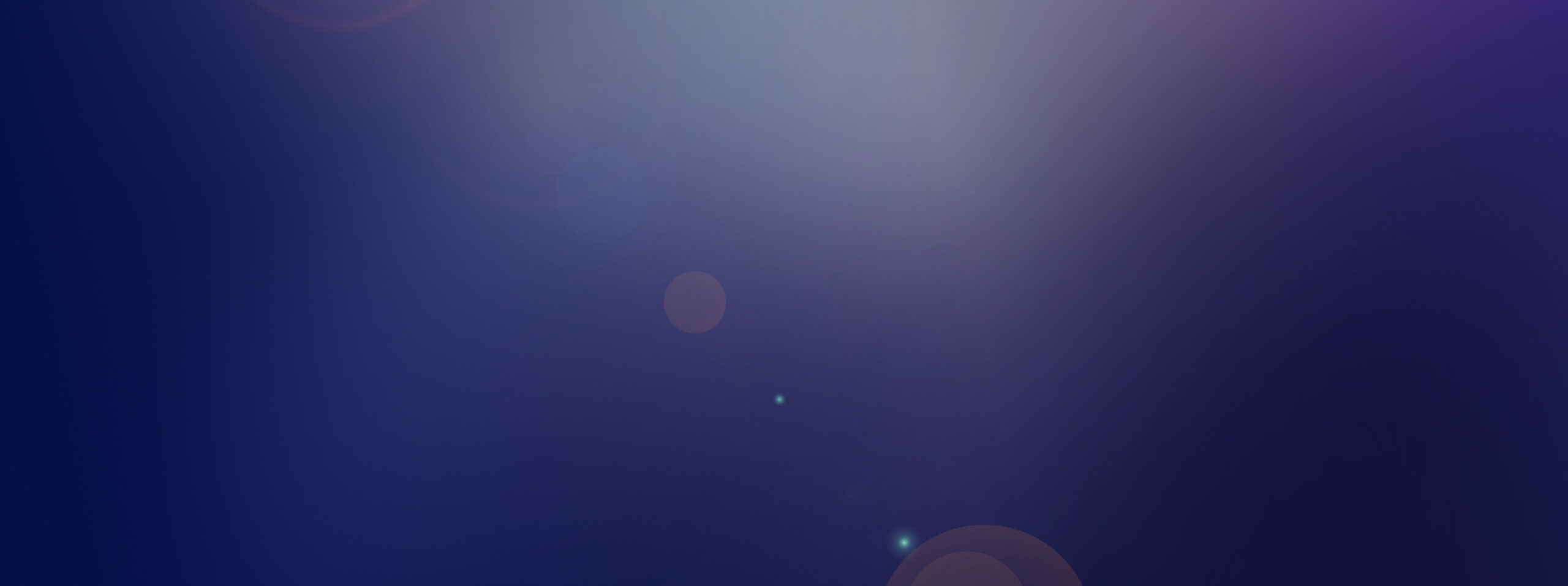Channeling the Voice of the Customer with Brittany Kennedy of Sysco
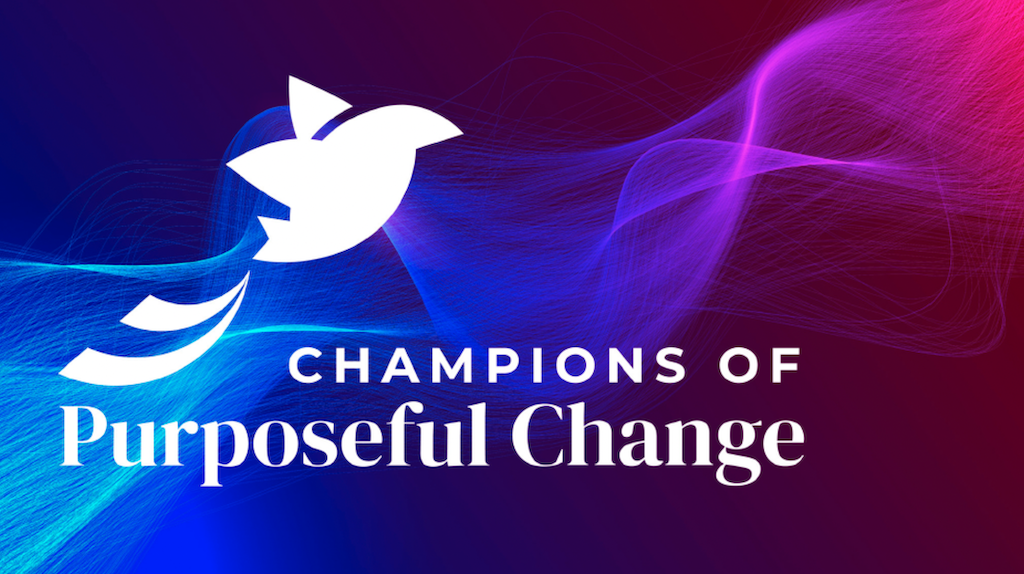
On this episode, we catch up with Brittany Kennedy, Director of Research and Insights at SYSCO. Join us as Britt walks us through her career and talks about her role channeling the voice of the customer at the world’s global foodservice leader. We hope you enjoy the show!
Bill Gullan: Greetings one and all. Welcome to Champions of Purposeful Change. I’m Bill Gullin, president of Finch Brands and your host for a conversation today with Britt Kennedy. Britt is the Director of Research and Insights at Sysco. That’s S-Y-S-C-O, the massive amazing food service organization. Britt is going to take us through her career and some of the work they do at Sysco and what it is about Insights that really lights her up and we’re so grateful that Britt is with us. Enjoy your time with Britt Kennedy. We are so excited to have Britt Kennedy with us from Sysco. Britt is the voice of customer leader at Sysco, and thank you for spending some time with us today, Britt.
Brittany Kennedy: Happy to be here.
Bill Gullan: Excellent. So let’s start where we typically do and I think is interesting. Very few people are playing as children, dreaming about career and insights, but as they get to know it better across their professional lives, some people gravitate there. Let’s hear a bit, if you wouldn’t mind, about your own journey from where you sort of began either academically or professionally, and what has sort of led you to the role that you occupy.
Brittany Kennedy: Yeah, so my dream as a child was to be in broadcast journalism. I envisioned myself on TV doing the news, and when I left for college, that was still the plan. I went to Southern Methodist University in Dallas, Texas with a plan to join their journalism department. When I went to orientation, I had some extra time and decided to go to a presentation in the business school. I fell in love with the professor that was talking about marketing, talked a lot about psychology and really the influence between that connection for psychology and the business element with marketing. I had always been really interested in why people do what they do and just things related to psychology. Never felt like psychology was the right fit, but hearing that professor talk about marketing in that way, I decided to switch to marketing right then and there and I switched and got a business degree in marketing and undergrad from SNU.
Bill Gullan: Mustangs.
Brittany Kennedy: Yes, go Mustangs. After that, I wanted to do something good in the world and I worked in nonprofit for a little bit. I planned the Girl Scout cookie sale in Houston, Texas for several years.
Bill Gullan: Oh nice.
Brittany Kennedy: A lot of fun. As I said, it’s actually girl Scout Cookie time in Houston right now. So great way to support girls. But I did that for a while and really it was an encounter at the girl Scout Cookie Bakery that made me decide it was time to go back and get back into business. There are two Girl Scout Cookie bakers. There have been the entire time and I got a chance to go and visit one of them in my role in the cookie sale department in Houston. One of them also does a lot a private label products outside of what they do for Girl Scouts. I just said, I really want to get back into what we started on.
So I decided to go back to school. I didn’t feel like I could do a shift from nonprofit back directly into corporate America. So I quit and went and got my business degree at Rice in marketing. My plan at that time was to go into brand building. That’s what most marketers in business do is they go and they lead brands. But I did an internship when I was at Rice at Wrigley in Chicago and I was on the brand team. I supported the brand teams at Wrigley. But what I fell in love with was the woman who supported us from an insights perspective. She knew everything.
Any decisions that we were thinking about that summer, I had to go and ask her questions about what the consumers would think. She had all of this information and I felt like that was really where I needed to be, was in a role like what she was doing. So I wanted to stay in Houston, needed to stay in Houston, and so I did not want to be in oil and gas. So I went to work for NPD and I was able to support some CPG clients working from NPD and Houston. So that’s sort of how I got here. Obviously there’s a Sysco story there too, but I can pause and see if you have follow-up questions. I’ll stop there and see.
Bill Gullan: That’s excellent. Since I said go Mustangs, I got to say go Owls too, just to honor the time that you spent at Rice. There is still time, by the way, later on to be on TV. Maybe you’re working up towards that before we get into Sysco. And by the way, for those who are watching, not listening, this is Sysco, the massive amazing food service brand, not the CIS technology brand, but the NPD experience. When you think about what you’ve been doing since you’ve been at Sysco for the last decade or so, any differences? NPD is a renowned syndicator and supplier now. You’re so-called client side, you’re within the business. Are there any differences that you’ve experienced along the way between having clients and serving clients versus maybe serving your internal colleagues and teammates at a place like Sysco?
Brittany Kennedy: I think there certainly are. I would say truthfully there’s a lot more similarities than I anticipated. One of the reasons I wanted to move from where I was to being on the client side was because I felt like I would be able to have more power to make decisions on the client side. I would say I still do a lot of internal selling at Sysco. So either way, when you’re finding insights from an agency side and you’re finding stories that you think are important to tell or you’re an internal person that’s still finding stories, you’re selling to somebody that we need to make a change and a decision. So I do believe that I have more influence, which is again, what I was hoping to have, but it’s still a big sales job every time I find something that I want to convince somebody to do differently even at Sysco.
Bill Gullan: Right. Interesting. And you mentioned your early experience, the internship at Wrigley and then in NPD you were serving CPG. Sysco obviously is I guess B two B2C. The end clients of Sysco are food operators across different formats and settings. Any observations about the difference in insights roles in the B2B realm as in Sysco versus maybe some of the consumer-facing stuff you did at Wrigley and NPD?
Brittany Kennedy: For sure. I think the biggest thing is that our customers, restaurant operators very much care about things that are happening from a service standpoint. So I think I spend a lot more time thinking about service than maybe some of the visual aspects that I did before. Packaging, things like that. There are things that are important about packaging even in food service, but it’s a lot more functional than visual in a lot of ways. How do people use the packaging to make their lives easier, their employees lives easier as opposed to what does this look like from a visual appeal standpoint? Of course that matters to them, especially when their customers are going to view it.So there’s always these two-way things of when things matter to our customers. So there are those nuances. I do say that the food service industry and our customers are pretty unique.
They are owners. It’s definitely a B2B relationship. But when we think about our independent restaurant customers, which is a lot of what we do, a lot of them are single owners. They own one restaurant, and so they think about their lives as a consumer a lot and how they interact with us too. They’re very much influenced by what they see and what they experience in their personal lives as well. So I think even there there’s some bleeding between what it’s like to be in a B2B2C, especially because of the size of the operations a lot of times that we deal with.
Bill Gullan: Now. It makes sense, and I’d imagine these operators, these family businesses have a tremendous amount of passion and emotion for what they do as opposed to the sort of stereotype of B2B decision-makers as being sort of withdrawn and removed and sort of purely rational. That’s interesting.
Brittany Kennedy: Definitely. It’s their livelihood, right?
Bill Gullan: Yeah, no doubt.
Brittany Kennedy: Also, like you said, their passion, a lot of them have restaurants that were passed on from their parents or from their family, and so it’s definitely a lot of emotion that can be involved in this one. So that’s something that I think I may not have thought about early on as well.
Bill Gullan: Those folks, as we all know, have been through quite a period of time with COVID and with macroeconomic challenges and just sort of other things that have shaped the last few years of their lives. So I can imagine the emotion was at an even higher pitch, so to speak, the last handful of years. You left off on the bio you were at NPD and love to hear how you got to Sysco and sort of how your role has progressed over the 11 years or so that you’ve been part of this amazing company.
Brittany Kennedy: Yeah, I would say I said that the reason I wanted to do the client side is because I felt like I would have more influence. That was always the case. Even when I chose to go to NPD in all candor, I went there because I knew that I would be supporting some clients and my original thought was, Hey, I’ll get on with one of these clients after I spend a few years supporting them. I worked in the automotive division, that’s the division that worked out of Houston, so we worked on products that people use on their cars.
Bill Gullan: Interesting.
Brittany Kennedy: So windshield wipers, cleaners, all that kind of thing. Motor oil, learned a lot about motor oil that I did not know. So it was a lot of fun. It was very interesting to learn about that industry, but I’ve always had a passion for food. I actually tried to get an internship with Sysco when I was at Rice. They didn’t have a formal internship program at that time. We do now. It was just me kind of trying to ask around and see if we could get on. So I just always kept my eye on Sysco and I actually just eventually got lucky. I didn’t know anybody there in the insights role.
But around 2012 when I started, Sysco was going through a pretty big transformation in terms of how they were thinking about their business. Category management was big for everybody in the industry and really trying to shift from how the businesses sourced our food. So they were hiring a lot of people from CPG or from traditional insights roles at that time. So really the timing was just right at that time for me and I was able to come over.
So I started supporting that initiative thinking about how we think about the assortment that we have, what should we be offering to customers? So it was really part of the first insights group that had at Sysco at that time. So building a lot of things including that assortment insights function. But there was also at that time, the first program where we were doing loyalty measurement, voice of customer from that standpoint as well. So I did not touch that element when I first started, but after a couple years supporting the assortment insights, I took over that program where we asked customers about their day-to-day experiences with Sysco and other providers that they work with as well. Then things just continued. I love learning about what our customers think. I love talking to our customers. So I’ve stuck around Sysco for 11 years.
It’s funny, when I first started, there were people that had been at Sysco for 20 or 30 years, and it was really rare to be somebody that was a one or two year, even though there were a lot of us coming in at that time. So after this time, you’re one of those long timers. So I just really had a great time learning about the industry and learning about our customers and what they want from us. So I’ve just been lucky to keep learning and have that both all of our insights at Sysco. Now, I have both our voice of customer side where we’re learning about our experience and the other side where we’re learning about more strategic things about the industry and what we want. So have both sides and even some competitive intelligence as well while we’re monitoring what’s happening in the industry more broadly.
Bill Gullan: Excellent. It seems like a common denominator at every professional stop has been a deep curiosity and appreciation for seeing the world through the eyes of the customer. We can all imagine how that attribute or that interest plays out in the careers of successful and successful professionals, but it seems like that’s something that’s pretty deeply ingrained in your professional personality, Britt.
Brittany Kennedy: Absolutely. I actually just did something similar to this internally at Sysco where we’re interviewing people about their careers at Sysco, and that was funny enough, the trait that I talked about, it’s what I look for in my team members is this insane curiosity. It just is what you need to have to want to know more and to know why it’s so important in this field, for sure.
Bill Gullan: Yeah, no doubt. So speaking of this field that you and I occupy in different contexts, obviously, and you’ve talked a lot about presumably the insights themselves are fascinating and impactful and they help shape the approach that Sysco takes, there’s also a lot of innovation and perpetual enhancement to some of our methods too. So what are some of the trends that are shaping the insights world that are of interest to you? Obviously, we read a lot about AI. There are certain audiences that are harder to reach and sort of always new methods, but are there some kind of more futuristic things that you’re really interested in or excited about these days?
Brittany Kennedy: We’re definitely very curious about AI. We get a lot of feedback from our customers written. We’ve started talking to customers and getting their feedback via video. Some of our customers want to provide a video feedback of how something’s felt. So being able to use those transcripts, code them, figure out the emotion, the feeling, we’ve been doing sentiment analysis and getting things like that for a long time, but there’s a lot more that you can read and hear and even the tone. So getting technology that can understand how angry or how happy somebody is when they are providing feedback is really interesting to us. I think the other thing that we’re really curious about is being able to predict. There’s definitely a lot of survey fatigue out there, and so how do we think about getting feedback from customers without them actually telling us something verbatim and trying to use some of what we know from customers that do provide feedback and some of what we know from behavior to try to think about what we think people might be feeling is something that we’re curious and thinking about right now from a methodology standpoint.
We’re all overloaded with emails with text. It’s like what is the right way to reach people? So trying to figure out where those moments where people are willing to talk to you is really what we’re focused on. Our customers are very honest with us. It’s just about finding those moments that is a good time to talk. That’s really what we’re trying to figure out right now.
Bill Gullan: They probably have at least some of the independent owner-operators probably have sort of inconsistent schedules and it’s harder to know when things are going to be busy or when they’re going to be there or whatever. So I’d imagine there’s a heck of a lot of attention paid to exactly what you said, which is how to make this convenient enough for them that you get the kind of feedback that’s helpful.
Brittany Kennedy: Exactly. It’s unpredictable and sometimes that’s our fault. The truck is arrived that a time that they weren’t expecting and they were planning to talk to us, then they’ve got to stop and help bring boxes in or things like that. So certainly just meeting the customers in that time when they are willing to speak is really important.
Bill Gullan: Makes sense. Makes sense. This is awesome. Thank you so much for taking us through it. I can imagine how endlessly fascinating these topics are with customers. As someone who came to Insights as, again, I think many do inspired by a professor or by a professional that you saw, we think it’s hard to get data a little bit with podcasts, Britt, but we think that there’s a percentage of our audience who are starting out in their careers or who may be starting over or thinking about how they want to specialize in focus. Is there anything, any words of wisdom or sort of philosophies that have served you well along the path that someone in that position might appreciate hearing?
Brittany Kennedy: Yeah, I think there’s two things. One is that there’s data and information everywhere. I think just nurturing that innate curiosity, whether or not you are doing it in your role today or with your spare time. I told this story on that internal Sysco call too, but I spend a lot of time just looking at social security administration data on names. I’m very interested in the names that people use for their children. There’s just so much just random data out there that the government puts out that you can just get curious on in your spare time. I think just finding that way to be passionate about those connections between the things that you’re interested in and that push to keep finding more information just helps hone some of those skills that you need.
My husband is a strategy finance guy and he told me something a long time ago about this five wise things that he uses, which is-
Bill Gullan: Right.
Brittany Kennedy: Not necessarily an insights related strategy, but it’s very helpful and insight. So I use that a lot is when we find something that seems interesting in our feedback, our data to ask why and then ask why, and then ask why, ask why, ask why, really to try to help get to the source of the trouble. At the end of the day, that’s what we’re trying to do is to make change before our customers are hit with whatever that experience is that is uncomfortable.
Bill Gullan: Right. No, that’s great. Actually, the five whys have been helpful to me in moderating qualitative research and not being content with a pat answer that might be one or two or three steps beyond what you say the source. If you keep asking why and you do it in a way that is not annoying or irritating, which is another consideration, then sometimes you can get people to peel a layer that is a little bit less conscious or a little bit less rehearsed. So that’s been a good sort of tactical practice for me in terms of baby names. Yeah, it’s fascinating to see how it used to be all Jennifers for a while or Johns, Johns and Davids, and it’s definitely gotten a little bit more fanciful. There’s a lot of Liams these days, for example.
Brittany Kennedy: It’s fanciful. Honestly, even just studying the demographics tells you things about what’s happening in our country. So I think there’s just all sorts of really interesting things that you can see with baby names and just finding that weird, quirky thing that you enjoy doing and can connect the dots with your other life is just a way to keep working without feeling like you’re working.
Bill Gullan: No, no doubt. So mine are Grace in Winston. There were no Graces for 30 years and now all of a sudden in most classes that my eighth grade daughter is in, there will be another Grace, interestingly. There’s never Winstons. Unless somebody has a French Bulldog, we don’t tend to run into too many other Winstons.
Brittany Kennedy: British uncle.
Bill Gullan: Yeah, exactly. Or I guess a committed cigarette smoker, although you don’t hear much of those anymore. But it makes me sound like an Anglophile, like a little royal family here in the Philadelphia suburbs with Grace and Winston.
Brittany Kennedy: I love it.
Bill Gullan: You have two boys, right?
Brittany Kennedy: I do. I do.
Bill Gullan: Nice.
Brittany Kennedy: I do. I have a Jude, which is one that you do see on the list, and I have one that you’ll not see on the list at all ever. My husband has a tradition in their family where all of their names started with Ys.
Bill Gullan: Oh, interesting.
Brittany Kennedy: Yeah, so we had to come up with a name that started with a Y for our firstborn, and so we looked at French names. Yannick was one that we considered. There was a famous tennis player.
Bill Gullan: Yannick Noah. Yes, he was fabulous. What an athlete. Yes.
Brittany Kennedy: Yeah, exactly. But we settled on Yale for him.
Bill Gullan: Oh, interesting. Cool.
Brittany Kennedy: Yeah, it’s a story in and of itself every time that comes up.
Bill Gullan: Yeah. Not on the list, but very cool. When we went through baby names, and it’s funny, in Finish we name a lot of companies and we do a lot of brand creation and stuff, and I’ve always loved naming, but when you go through it with your own kids, it’s like you got to game out. What’s the nickname going to be? Is there an easy sing-song mockery that we want to avoid? You don’t want to kind of put them in a disadvantage.
Brittany Kennedy: Initial, all of that stuff.
Bill Gullan: Fascinating. Yeah, these are the kinds of things that I guess researchers think about and analyze to depth, but super cool. Well, Britt, we’re so grateful for your time and insight and a fascinating road that you’ve had that I’m sure remains fascinating every single day with the wild and wooly world of Sysco and your clients and all the things that they’re able to bring forth that ultimately helps make an impact on the business. Thank you so much for your time.
Brittany Kennedy: It’s been a lot of fun. Thank you for having me.
Bill Gullan: Thank you to Britt for her time, her insight, her passion, sharing her experiences and her career path with us. So thank you Britt. Three ways as always to support us here at Champions of Purposeful Change. The first is to click Subscribe in the podcast app of your choice. Make sure you do not miss a single episode when they come live. The second way is to give us a rating or a review within that podcast app that helps us get found by others who would find value in this content. It also gives us the kind of feedback that helps make sure that we’re delivering the type of content that is valuable to our listeners. Then thirdly, send us a message with ideas, with feedback. Our skin is thick. We greatly appreciate ideas for future guests or future topics, ways in which we can make Champions of Purposeful Change all that we seek for it to be for you, our listening audience for which and for whom we are extremely, extremely grateful. So those are three ways to help. Thanks for spending time with us today, and we’ll sign off from the Cradle Love Liberty.


